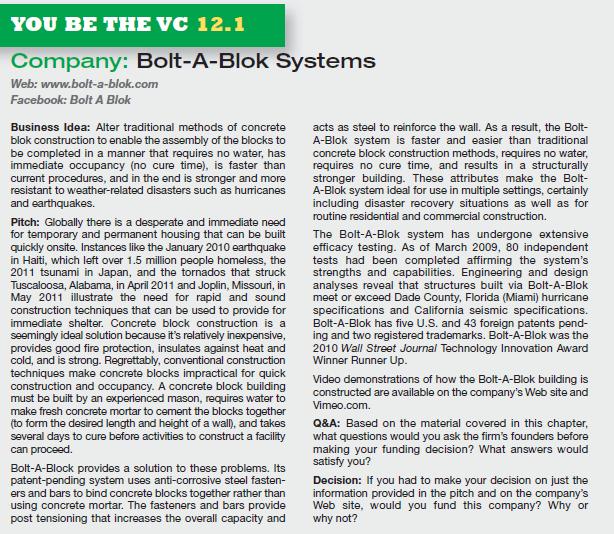Savvy owners of intellectual property are always on the lookout for people who infringe on their intellectual
Question:
Savvy owners of intellectual property are always on the lookout for people who infringe on their intellectual property and take legal action when necessary. From 2002 to 2005, this scenario played out in a dispute involving a company named Passport Video and the copyright holders of music and videos produced by the late Elvis Presley.
Alleged Copyright Violation
Elvis, affectionately known as “The King” of rock and roll, was a musical icon for more than 20 years until his death on August 16, 1977. During his career Elvis was very prolific, and a wide variety of people own the copyrights to his music, videos, and films. In 2002, Passport Video, a video production company, produced a video documentary of Elvis’s life titled The Definitive Elvis. The documentary, which included eight DVDs and 16 hours of video, focused on every aspect of Elvis’s life and was priced at $99.00. Each episode contained shots of Elvis performing—many of which were taken from sources that are copyrighted and owned by Elvis Presley Enterprises or others. The shots included Presley home movies (owned by Elvis Presley Enterprises), material from The Ed Sullivan Show, and portions of Ed Sullivan Rock & Roll Classics—Elvis Presley (owned by SOFA Entertainment). Other material included shots from The Elvis 1968 Comeback Special, Aloha from Hawaii, and Elvis in Concert, which included songs written by Jerry Leiber and Mike Stoller. Passport did not get permission to use the material. As a result, the copyright holders, who caught wind of the production of the video, informed Passport Video that they objected to the production of the videos. Passport Video persisted, and in August 2003 the copyright holders sued Passport Video for unauthorized use of footage and copyright violations. They also asked for a preliminary injunction stopping Passport Video from selling any more copies of the documentary, which a U.S. District Court granted.
Discussion Questions
1. Do you agree with the Ninth Circuit Court ruling? Why or why not?
2. Why do you think the copyright holders of Elvis’s work objected to Passport’s video series? How were they “harmed” by the production and sale of the videos?
3. Do you think Passport Video acted ethically and honestly and believed that its production was protected by fair use, or do you think the firm was simply using fair use as a way of avoiding paying royalties for the copyrighted material it was using?
4. What can entrepreneurs who are interested in trademark law learn from this case?
Application Questions
1. Do some Internet research and find another case of copyright infringement. Write a brief summary of the case. Indicate whether the case has been decided, and whether you sympathize with the defendants or the plaintiffs in the case. If the case has been decided, indicated whether you agree with the ruling.
2. The “You Be the VC 12.1” feature in this chapter focuses on Bolt-A-Blok, a company that has developed a new approach to concrete block production that requires no water, has immediate occupancy (no cure time), is faster than current procedures, and is stronger and more resistant to weather-related disasters such as hurricanes and earthquakes. Write a short intellectual property plan for Bolt-A-Blok. Include in the plan all facts of Bolt-
A-Blok that should be protected, and the form of intellectual property protection that should be used in each instance.
Step by Step Answer:

Entrepreneurship Successfully Launching New Ventures
ISBN: 9780132555524
4th Edition
Authors: Bruce R. Barringer, R. Duane Ireland





